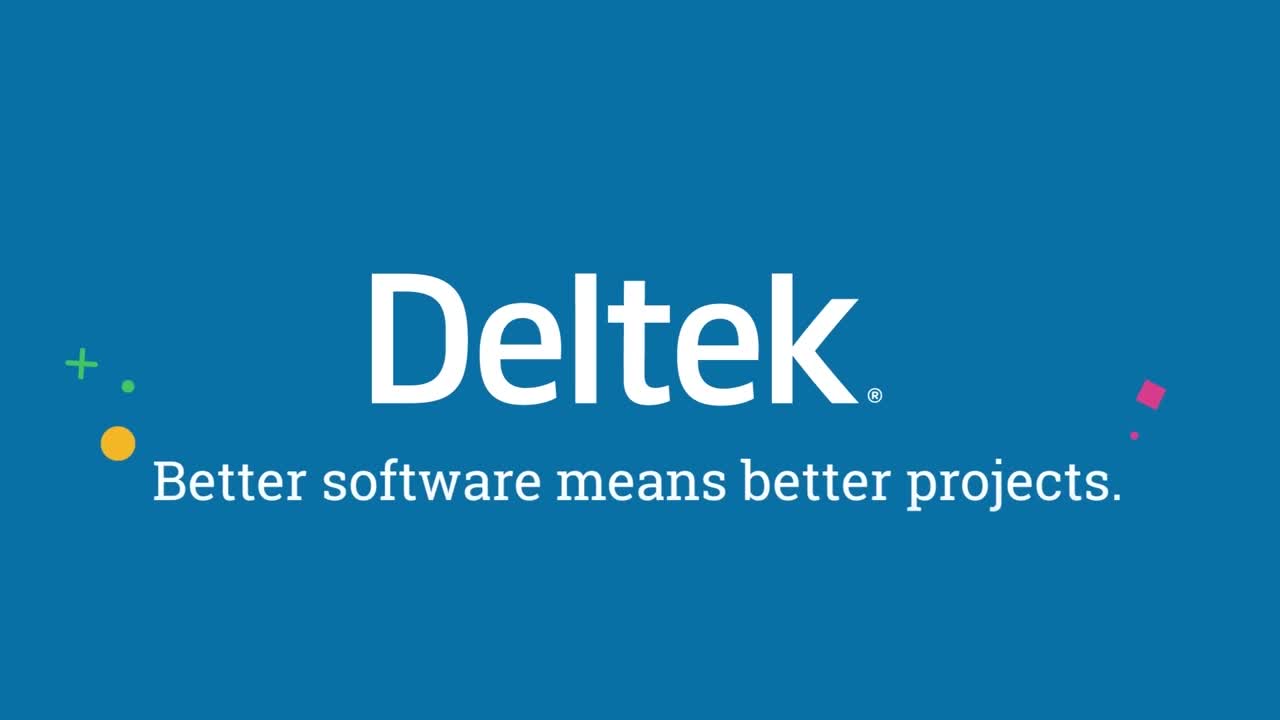At Deltek, our mission is to deliver solutions that help project-based businesses connect and automate the project lifecycle. Our software and information solutions enable them to improve their project intelligence, management and even support collaboration. We’re passionate about powering project success and we believe that this is achieved by giving businesses access to better software.
We’re proud to already support over 30,000 organisations across the globe at every stage of the project lifecycle. From streaming business development to measuring strong financial results through project-based ERP, Deltek helps firms achieve performance that maximise productivity and revenue.

How can digital transformation support businesses to mitigate the impact of inflation?
By helping to boost productivity. Many businesses, large and small, believe that digital transformation projects are always a huge undertaking, requiring significant resource and budget – but they don’t have to be. Some of the greatest digital transformation benefits achieved by using technology to transform focused areas of a process. One example is resource planning.
The cost of doing business will be impacted massively by the global recession. By being able to identify where efficiencies can be made, businesses can go some way towards offsetting two of the largest cost increases we know are due to set in: employee salaries and utilities. For example, through digital transformation, businesses can have a comprehensive, collated view of project margins, employee capacity and timelines in real-time. This allows them to identify where losses could occur further down the project timeline, so they can proactively mitigate projected losses.
Applying these insights across the business, the minutes saved turn into hours, into days, into weeks. With small tweaks, businesses build up flexibility which can be used to combat the impact of rising costs.
More from Interviews
- Meet Roman Eloshvili, Founder of ComplyControl
- Inside Mobile Payments with Bojoko’s Ville Saari
- Meet Steve Haskew, Group Director of Sustainability and Growth At Circular Computing
- A Chat with Hakob Astabatsyan, CEO and Co-Founder of Synthflow AI
- Meet Ernesto Suarez, CEO at Travel Insurance Provider: Gigasure
- Under Pressure and On the Clock: Gurhan Kiziloz’s Nexus International to Hit $1.45B Revenue in 2025
- Daisy Ip of InvestHK: Why Hong Kong Continues To Grow In Popularity Amongst UK Fintech Startups
- A Chat with AJ Balance, Chief Product Officer at Grindr
Over the coming year, how will project management change? What role will tech play within the change?
As inflation continues to rise, we will see businesses re-evaluate their core objectives and KPIs to be very focused on the details surrounding profitability, and cashflow. Companies will be looking to have real-time access to data around which clients and sectors are providing the best returns, looking at key metrics such as time tracking, expense management and invoicing, so they have an accurate picture of where opportunities and threats to the working capital of the business lie.
To achieve this, technology platforms that provide live up-to-date information, such as enterprise resource planning and professional services automation software solutions offer business leaders the visibility they need, when they need it. Across the business, insights can be collated to provide live reporting which will enable greater business agility and a focus on the areas that will perform best as budgets are tightened.
How will Deltek diversify to address these changes and suit the modern workforce?
At Deltek, we know that people are the heart of projects. While driven by clients, it’s the teams behind the scenes that are powering the projects to expectational results, delivering results which supersede expectations. However, we all know that delivering exceptional works is no easy feat and can often result in employees having to go above and beyond, which can, when not managed correctly, result in employee burnout.
Deltek software enables Resource Managers to have more visibility around employee workloads, for both active and upcoming projects, so they can accurately forecast where there is and isn’t capacity to take on more work. Work life balance has never been more important to employees and modern companies need to prioritise taking care of employees to retain their best talent.
What are your top 3 considerations for project-based businesses in 2023?
Going into 2023, the top consideration for project-based businesses should be cleaning up their data and creating customisable and digestible reports. You’d be surprised how many businesses continue to manage projects in spreadsheets, which are often updated by multiple people across multiple departments. This creates an obvious risk of error and reduces confidence in the accuracy of data. Perfect data creates project reports, enabling decision-makers to join the dots and make corrective actions much quicker.
The second consideration should be people. A company’s workforce is its greatest asset and should be protected against burnout. Live workload management will help employers keep ahead of workforce trends, avoid employee burnout and overall enhance the employee experience. On the flipside, it also shows where there is capacity in the business to take on more work and where tasks can be optimised or redistributed to work more efficiently and further increase profit margins.
Last, but not least, add business intelligence to inform project profitability. By introducing KPI’s and prioritising smarter working through analytics, businesses can dig deeper into the data. This allows them to evaluate all aspects of the viability of a project – from materials and labour through to client communications and creating digital assets – and uncover the trends that are helping and hindering profitability. From these insights, they can refine their strategy to focus on where best to focus resources, become more efficient and ultimately gain a significant competitive advantage.



